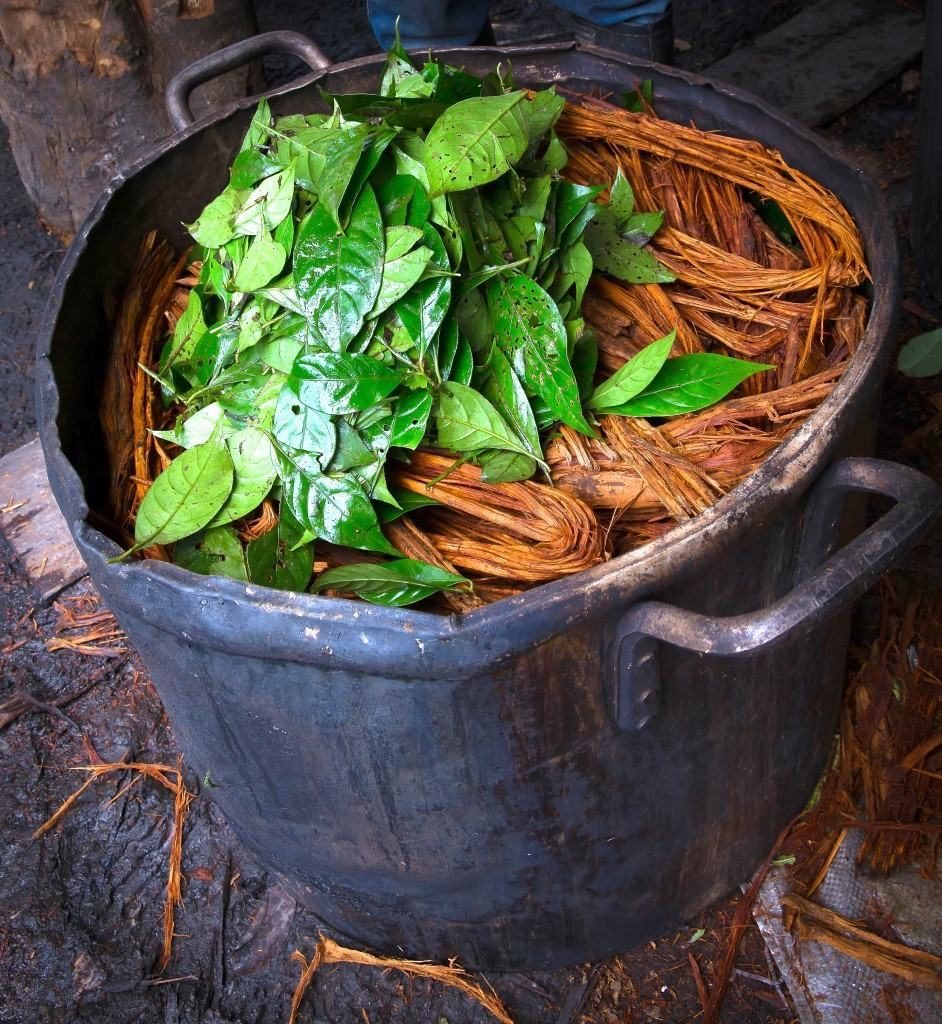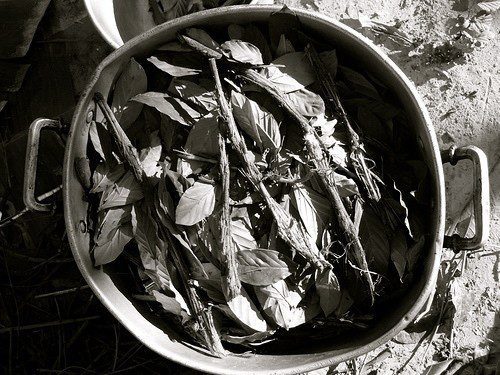Ayahuasca is gaining a growing reputation for helping people deal with their mental disorders. Scores of anecdotal reports tell of people who have used the psychedelic drink to come to terms with PTSD, depression, anxiety and other pervasive afflictions of the mind.
A recent study confirmed what ayahuasca advocates have long known: Those who ritually take the brew have lower levels of depression, anxiety, hostility, paranoid ideation, phobias, worry, shyness, fatigability and weakness. Subjects who use ayahuasca also scored better on self-transcendence, spiritual orientation, transpersonal identification, self-forgetfulness, sacredness of life, altruism, subjective well-being and mission in life than did a control sample.

“Taken together,” the study states, “the data point at better general mental health and bio-psycho-social adaptation in the ayahuasca-using group compared to the control subjects.”
Ayahuasca is made from two plants native to the Amazon jungle. It has been used for centuries by native peoples for healing and religious ceremonies, and has been gaining more attention from the rest of the world in recent years. People who take the substance report undergoing a profound spiritual journey, seeing a clear glimpse of themselves and receiving the freedom to separate from ingrained baggage and negativity.
The study, published in the PLOS One journal in 2012, compiled a group of ayahuasca users from Céu do Mapiá, a religious community in the Brazilian Amazon, which is home to the Centro Eclético da Fluente Luz Universal Raimundo Irineu Serra (CEFLURIS).
“CEFLURIS is a church of the Santo Daime, a syncretic religion that combines Christian, indigenous, Afro-American and esoteric traditions,” the study notes. “The experiences attained by followers during rituals are interpreted as contact with ‘God’ and the ‘spirits’ and other archetypical ‘entities’ from their religious beliefs and doctrine.”
Another group was drawn from religious users who lived in the city of Rio Branco. Subjects had to have taken ayahuasca at least twice a month over a 15-year period. The control groups were chosen from people who lived in nearby towns and had used ayahuasca at most once or twice in their lives.
The study was the first on ayahusaca to use such a large sample size, and to corroborate its results by following up with the subjects a year later. The results also showed that taking the drink even over years had no long-term negative effects on users.
“Ayahuasca users showed a lower presence of psychopathological symptoms compared to controls,” the study concluded. “They performed better in neuropsychological tests, scored higher in spirituality and showed better psychosocial adaptation as reflected by some attitudinal traits such as Purpose in Life and Subjective Well-Being. Overall differences with the control group were still observable at follow-up one year later.”
Other research has shown similar results. A 2005 study published in the Journal of Psychoactive Drugs found a “remarkable reduction of minor psychiatric symptoms” and “calmer, more assertive and vivacious behaviors” from people who took ayahuasca for the first time. And a 2007 paper in the Journal of Ethnopharmacology showed that the brew relieved anxiety, hopelessness and panic in those who consumed it.
A growing pile of research is showing that for people who struggle with mental disorders, it can be a powerful, effective and long-lasting treatment.
